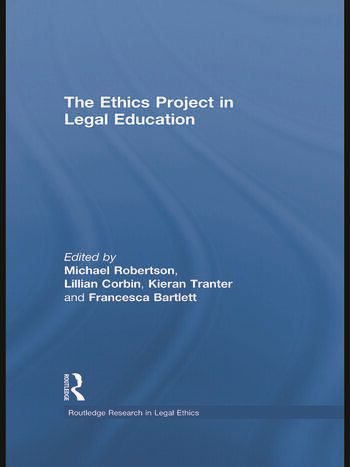
There is a growing recognition that legal professional rules or codes, the ethical basis upon which legal professionals are regulated, do not always provide guidance for many of the situations that legal practitioners and other legal actors face on a daily basis. Therefore it is important to prepare future practitioners for the eventualities which they may face in practice. However, there is no template for this goal. There is nothing that sets out how legal educators can create good ‘ethics’ learning outcomes that help students to comprehend that lawyering is much more than just applying the rules to their clients’ situations and, at a personal level, the conduct that is expected of them. Much more thought needs to be given to the question of the aims, scope and methodology of ‘legal ethics education’. This book goes some way to achieving this aim, presenting the views of a number of internationally renowned legal ethicists, including Brent Cotter and David Chavkin, on the topic of the teaching of legal ethics.
The book discusses the meaning of ‘legal ethics’, adopting the basic premise that legal practitioners need to exercise personal responsibility and choice in carrying out their work. That because the current formal rules are inadequate true engagement with ethical issues requires them to exercise judgment. While this is now a well-accepted view among legal ethicists, this is not the traditional approach to teaching legal ethics and therefore there is a need to rethink the law curriculum. The contributions to the book offer a breadth of coverage examining legal ethics teaching in a range of jurisdictions including the USA, Canada, Australia, and South Africa and Hong Kong. A number of contributors discuss design issues that cover a broad field of methods, including simulations, the pervasive use of problem-solving exercises, and real-world experiences, with some of the essays revealing their empirical findings on the effectiveness of these methods and particularly as they affect the students.